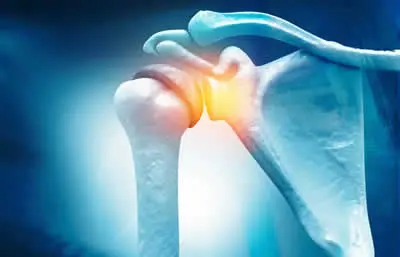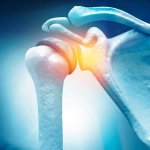Lawyers for Rotator Cuff Injuries in Dallas-Fort Worth

Not only do we offer the lowest fee, according to TopVerdict.com, our Dallas law firm obtained 43 Texas “Top 50” personal injury settlements in the last 3 years. We will maximize your rotator cuff injury compensation, and you will pay ZERO until after your claim settles. Call (214) 747-5240 now to talk to someone who cares, or use the form or chat feature on this page to request your free consultation.
DID YOU SUSTAIN A ROTATOR CUFF INJURY?
NO FEES UNLESS YOU COLLECT
- No Upfront Cost – Pay ZERO Fees Until Your Case Settles
- We Guarantee $$ in Your Pocket Or Waive Our Attorney Fees
- Get Medical Diagnostics & Treatment with $0 Out of Pocket.
- Pay ZERO Fees of Any Kind Until After Your Case Settles.
- Get More $$ in Your Pocket with Our Discounted 29% Contingency Fee Vs. the Industry Standard Fee of 33.3%-35%.
Request Your Free Consultation Now!
Fast Attorney Response
In the last four years, our firm made Top Verdict’s “Top 50” Personal Injury Settlements in Texas list 44 times, and the “Top 100” list 70 times.






Top-rated Attorneys Who Settle For More
 If you have a damaged rotator cuff due to a third party’s recklessness or negligence, it is critical that you hire an attorney with a track record of success and the connections to help you physically heal and maximize your financial compensation.
If you have a damaged rotator cuff due to a third party’s recklessness or negligence, it is critical that you hire an attorney with a track record of success and the connections to help you physically heal and maximize your financial compensation.
Mullen & Mullen Law Firm has significant experience in handling rotator cuff injuries. Our attorneys routinely assist clients in obtaining the necessary medical care they require at no up-front cost – even if they don’t have health insurance.
We maintain strong relationships with medical specialists and have access to MRI’s, X-Rays, CT scans, and state of the art diagnostics and treatment options in DFW at no up-front cost.
About Rotator Cuff Injuries
 Rotator cuff tears cause weakness and can be very painful even to the point of impacting a person’s ability to perform activities of daily living such as getting dressed.
Rotator cuff tears cause weakness and can be very painful even to the point of impacting a person’s ability to perform activities of daily living such as getting dressed.
The rotator cuff is comprised of four muscles that unite as tendons to cover the head of the upper arm bone (humerus). It attaches the upper arm bone to the scapula (shoulder blade).
When one or more of the tendon(s) is torn, the tendon(s) do not fully attach to head of the upper arm bone. These tears are often referred to as either partial thickness tears (tendon is damaged but not completely severed) or full-thickness tears (tendon completely separated from the bone).
Categories of Rotator Cuff Injuries
Partial Thickness Tears
Partial thickness tears can often be treated with rest, avoiding certain activities, shoulder strengthening exercises, steroid injections, PRP (platelet-rich plasma) injections, or amnio injections.
Our personal injury law firm has connections with medical providers that offer all of the above – including the cutting-edge PRP and amnio injections.
Full Thickness Tears
Full thickness tears usually require surgery to heal. Physical therapy and rehabilitation following shoulder surgery tends to be very painful and very extensive, but it is critical that it be fully completed to avoid developing a frozen shoulder.
Someone who has experienced a torn rotator cuff will be susceptible to re-injury in the future.
The rotator cuff is a network of four muscles that help move and stabilize your shoulder joint. These muscles also keep the ball of your arm bone in the socket.
Types of Rotator Cuff Injuries
General wear and tear
This describes pain that can result from using your rotator cuff repetitively over time. Such injuries can occur from using your shoulder in a perfectly normal way.
Tendonitis
This damage results from overuse. It’s a common injury for jobs that involve extensive overhead work and results in pain and inflammation.
Bursitis
Small fluid-filled sacs (bursa) become inflamed or irritated. Like tendonitis, bursitis results from overuse, typically from frequent overhead work.
Tendon strain or tear
These injuries can result from both overuse and acute accidents. Strained tendons also can be more easily torn. A torn rotator cuff leads to more pain, extreme weakness in your shoulder, and the inability to fully move your arm.
Shoulder impingement
This is when your rotator cuff rubs or catches on bones in your shoulder. The tendons become swollen and painful. If ignored, this can lead to a torn rotator cuff.
Treatment Plan
While serious, shoulder injuries can usually be treated to the point of full recovery. Treatment can include rest, medication, physical therapy, injections, or surgery. Your doctor will help you figure out the right treatment plan. And more frequently than not, you won’t need surgery.
What to Do if Someone Else Caused Your Rotator Cuff Injury
If you have an injured rotator cuff and another person or company is at fault, contact Mullen & Mullen Law Firm for a free consultation. Get a discounted 29% contingent attorney fee on cases not requiring litigation (compared to the industry standard 33.3%) if you mention this special offer on first contact.
There is never a fee unless we win your claim. And we can get you medical care upfront with no out of pocket even if you don’t have health insurance.

